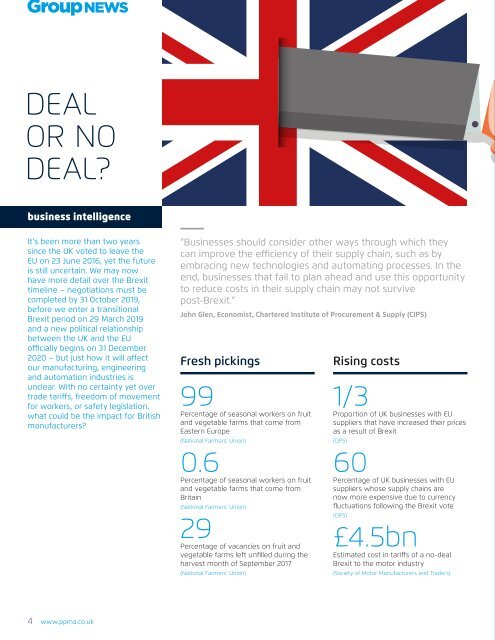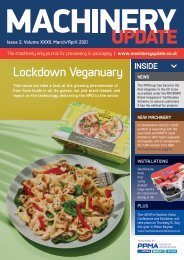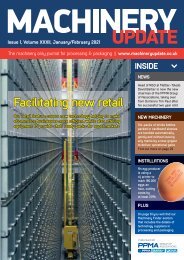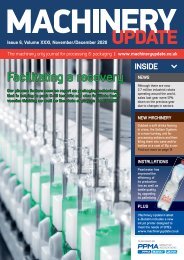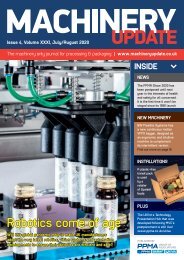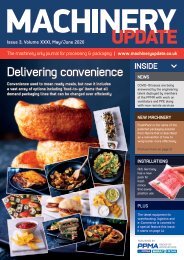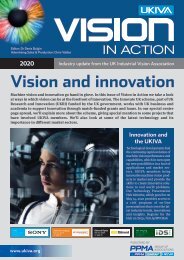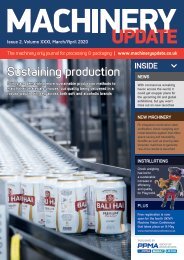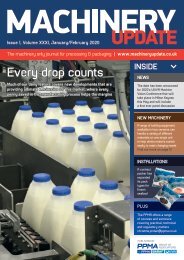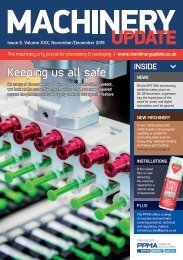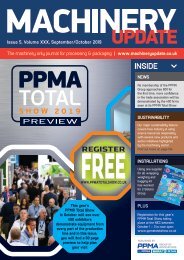PPMAGroupnews-issue6_v2 copy
Create successful ePaper yourself
Turn your PDF publications into a flip-book with our unique Google optimized e-Paper software.
Deal<br />
or no<br />
deal?<br />
business intelligence<br />
It’s been more than two years<br />
since the UK voted to leave the<br />
EU on 23 June 2016, yet the future<br />
is still uncertain. We may now<br />
have more detail over the Brexit<br />
timeline – negotiations must be<br />
completed by 31 October 2019,<br />
before we enter a transitional<br />
Brexit period on 29 March 2019<br />
and a new political relationship<br />
between the UK and the EU<br />
officially begins on 31 December<br />
2020 – but just how it will affect<br />
our manufacturing, engineering<br />
and automation industries is<br />
unclear. With no certainty yet over<br />
trade tariffs, freedom of movement<br />
for workers, or safety legislation,<br />
what could be the impact for British<br />
manufacturers?<br />
“Businesses should consider other ways through which they<br />
can improve the efficiency of their supply chain, such as by<br />
embracing new technologies and automating processes. In the<br />
end, businesses that fail to plan ahead and use this opportunity<br />
to reduce costs in their supply chain may not survive<br />
post-Brexit.”<br />
John Glen, Economist, Chartered Institute of Procurement & Supply (CIPS)<br />
Fresh pickings<br />
99<br />
Percentage of seasonal workers on fruit<br />
and vegetable farms that come from<br />
Eastern Europe<br />
(National Farmers’ Union)<br />
0.6<br />
Percentage of seasonal workers on fruit<br />
and vegetable farms that come from<br />
Britain<br />
(National Farmers’ Union)<br />
29<br />
Percentage of vacancies on fruit and<br />
vegetable farms left unfilled during the<br />
harvest month of September 2017<br />
(National Farmers’ Union)<br />
Rising costs<br />
1/3<br />
Proportion of UK businesses with EU<br />
suppliers that have increased their prices<br />
as a result of Brexit<br />
(CIPS)<br />
60<br />
Percentage of UK businesses with EU<br />
suppliers whose supply chains are<br />
now more expensive due to currency<br />
fluctuations following the Brexit vote<br />
(CIPS)<br />
£4.5bn<br />
Estimated cost in tariffs of a no-deal<br />
Brexit to the motor industry<br />
(Society of Motor Manufacturers and Traders)<br />
4 www.ppma.co.uk


